Venice Biennale 2022 closing review: who, how and what on earth?
As the sun sets on the 59th Venice Art Biennale (until 27 November), we look back on an edition filled with resilience, female power and unsurprisingly, lots of surprises
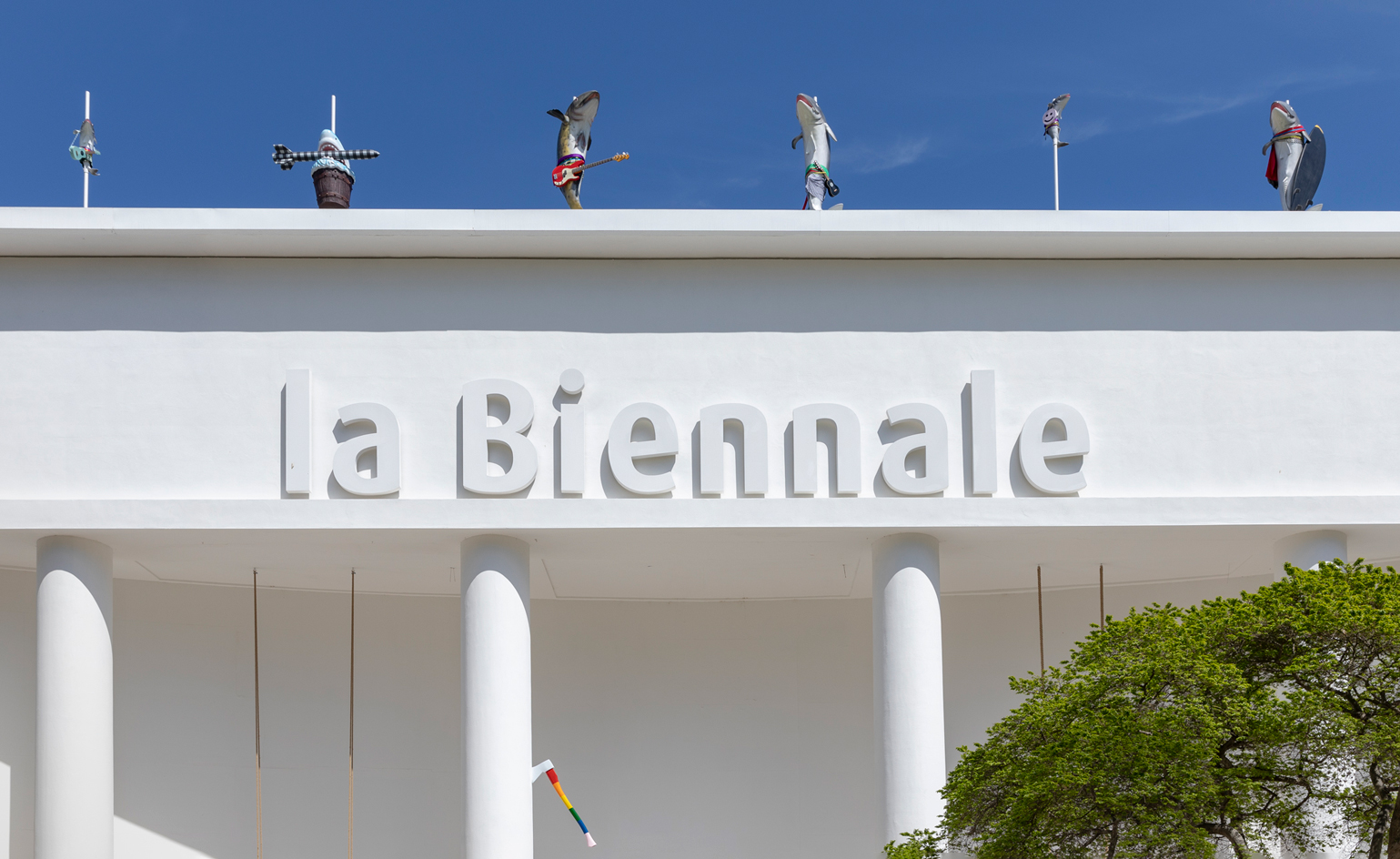
The Venice Biennale 2022 was something to behold. For seven months, this tiny, staggeringly stunning city became the centre of the art world.
Since April, hundreds of thousands of visitors attended both the main exhibition, 'The Milk of Dreams', and the major collateral exhibitions located around the city.
Days were fuelled by Campari Spritz, carbohydrates garnished with the occasional vegetable, wondering whether you will ever make a dent in your to-see list, as you wander the cobbled streets waiting for Google Maps to find you. (Hot tip: just because you think that Venetian leather goods shop looks familiar, it might not be.)
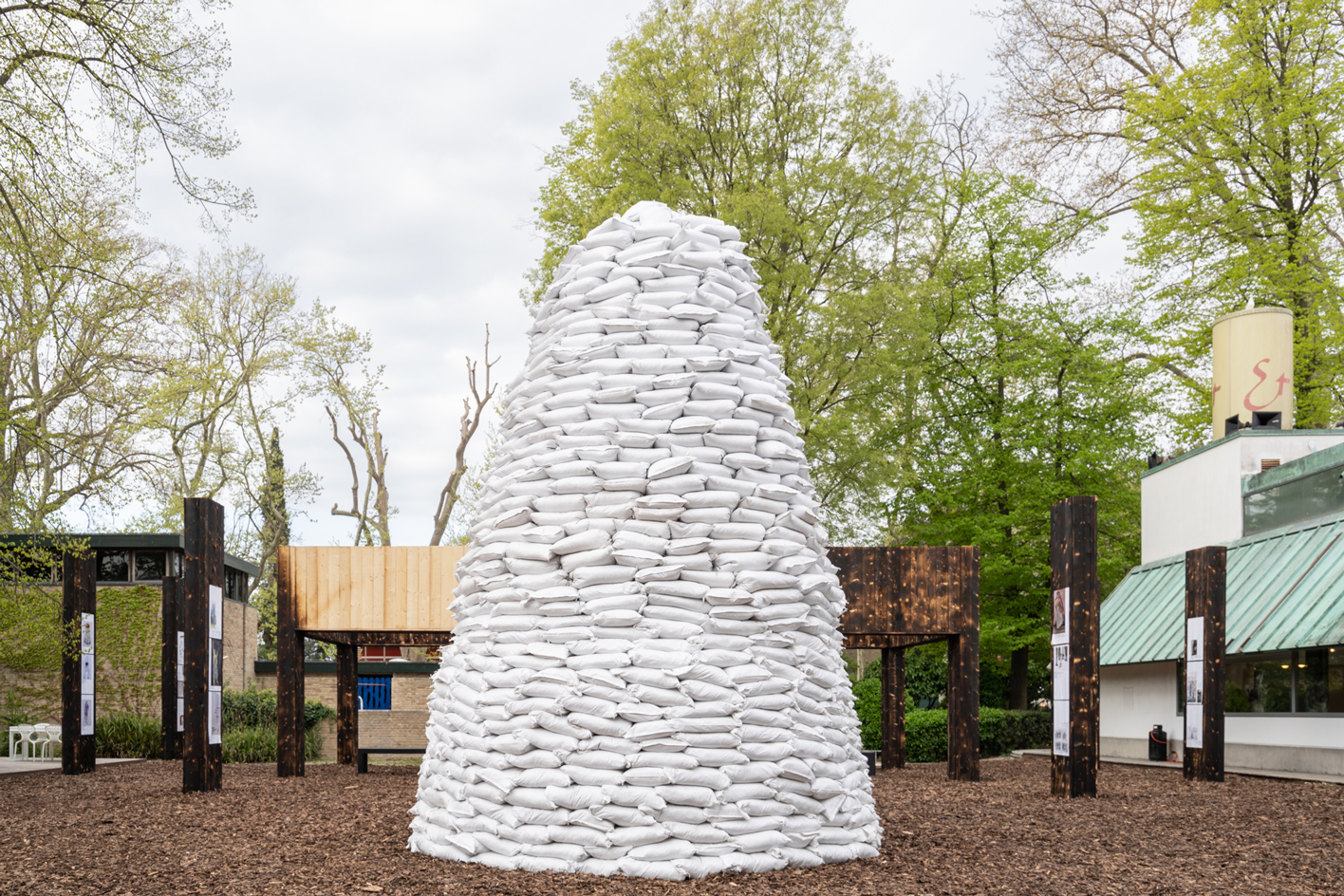
Piazza Ucraina, by the curators of the Ukrainian Pavilion, Borys Filonenko, Lizaveta German, Maria Lanko realised in the context of the 59th International Art Exhibition with the collaboration of the Ukrainian Emergency Art Fund (UEAF) and the Victor Pinchuk Foundation, an open-air installation at the Giardini of La Biennale, designed by Ukrainian architect Dana Kosmina.
The Venice Biennale 2022 felt like a renaissance of sorts (apt considering Venice’s pivotal role in the original version). This renaissance, however, was overshadowed by the ongoing war just across the continent in Ukraine. In the face of these devastating events, art’s power to protest, rouse, adapt, resist and empower is more evident than ever.
Venice Biennale 2022: art against the odds
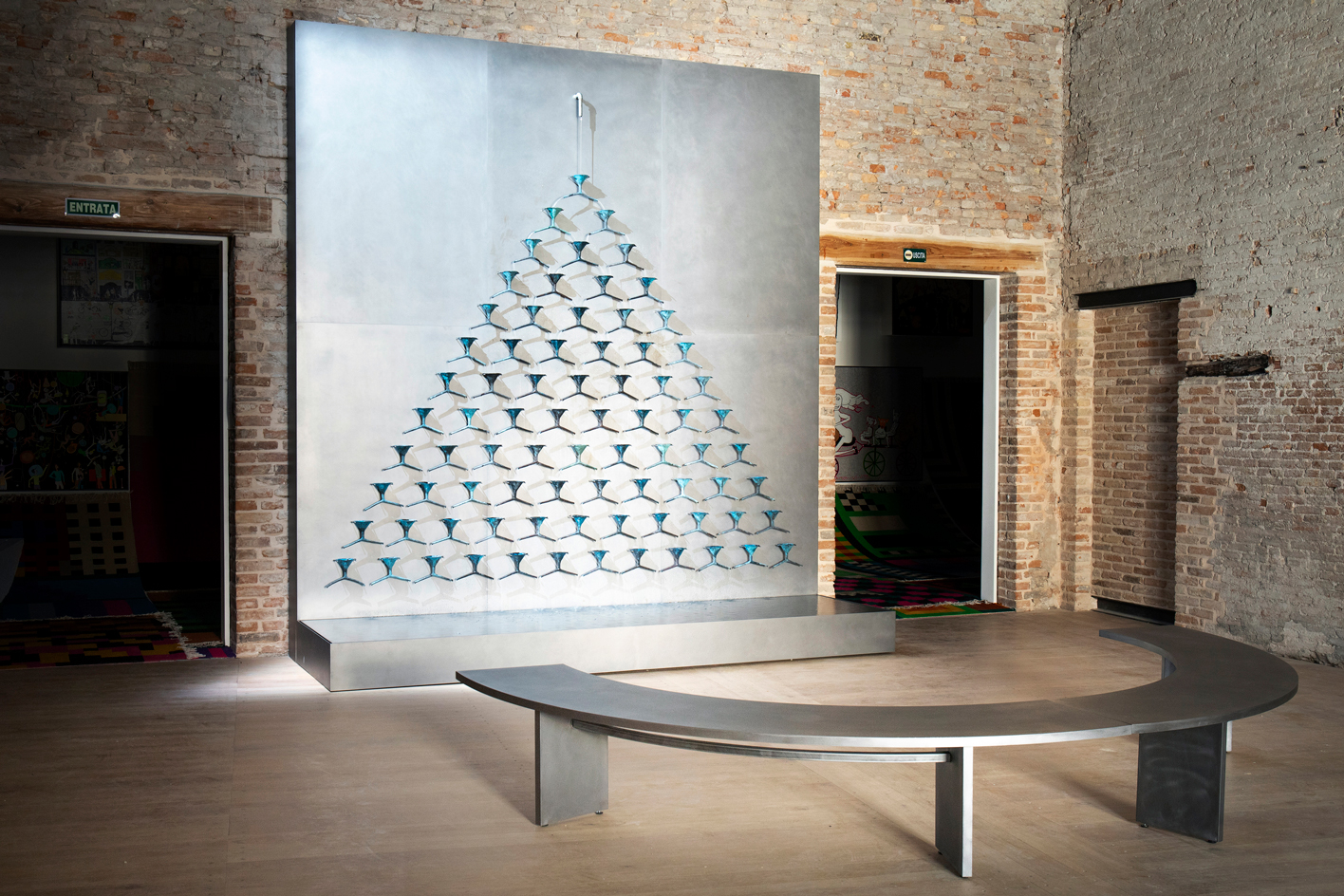
Pavlo Makov, Fountain of Exhaustion at the Ukrainian Pavilion, curated by Maria Lanko. The installation was produced by architecture practice ФОРМА.
Stark reminders of a raging war were never far from sight or mind. Beyond the Russian Pavilion (desolate, save for a lone security guard), there were powerful expressions of resilience that reflected the despair, anger, and anguish being endured by so many.
Against all odds, artist Pavlo Makov installed the Fountain of Exhaustion at the Ukrainian Pavilion, a triangular composition of 78 bronze funnels through which water trickles. The installation was made possible by the perilous, cross-continental effort by curator Maria Lanko, who transported the work from Kyiv to Venice on 24 February, the same day Russia initiated its brutal attack. The pavilion’s curatorial team also produced an outdoor installation, Piazza Ucraina, featuring a tower of sandbags, evoking the protective measures taken to preserve Ukrainian statues from damage.
Kazakhstan Pavilion art collective ORTA also faced setbacks due to war-related freight delays but quickly adapted to create an improvised, locally sourced set in which to stage their performances.
Wallpaper* Newsletter
Receive our daily digest of inspiration, escapism and design stories from around the world direct to your inbox.
Elsewhere, the exhibition ‘This is Ukraine: Defending Freedom’ is another example of Ukraine's admirable cultural resilience. The two-part group show – opened with a rousing live video speech by President Zelensky, who encouraged audiences to ‘support this fight with your art’ – features work of contemporary Ukrainian and international artists.
‘The Milk of Dreams’: Cecilia Alemani curates a surreal epic
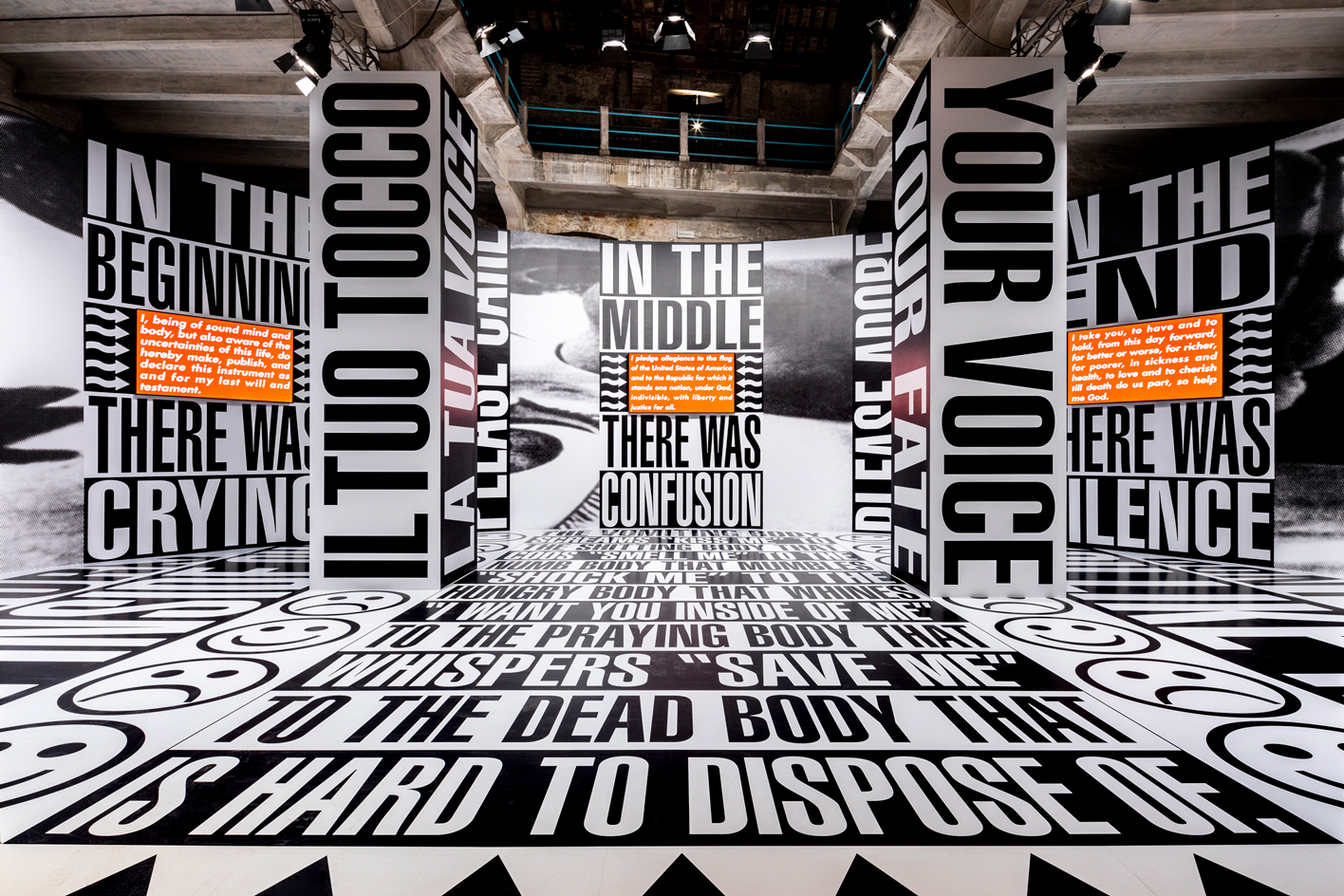
Barbara Kruger, Untitled (Beginning/Middle/End). 2022 Site-specific installation in the 'The Milk of Dreams', curated by Cecilia Alemani.
‘The Milk of Dreams’: had it all: fantasies, nightmares and everything in between. Taking its title from a book by Surrealist Leonora Carrington, the International Exhibition of the 59th Venice Art Biennale had a heavy emphasis on women and nonbinary artists, and included often-unearthly metamorphoses of human, animal, and mechanical.
Staged in both the Arsenale and Giardini, this is a hard show to curate. Firstly, there’s a lot of art (200 artists from 58 countries), but also a lot of space to fill. The Arsenale’s Corderie, a 316m-long industrial building divided into loose sections, functions as an art marathon, requiring stamina, pacing and regular pit stops. Simone Leigh’s colossal bronze sculpture Brick House, 2019, was an instant showstopper, whereas Raphaela Vogel's diagrammatic sculpture, showing a penis being drawn like a carriage by a herd of skeletal giraffes, induced visibly pallid faces and dropped jaws. Other notable head-turners came courtesy of Paula Rego, Barbara Kruger, Kapwani Kiwanga and Jes Fan.
The Golden Lion-esses
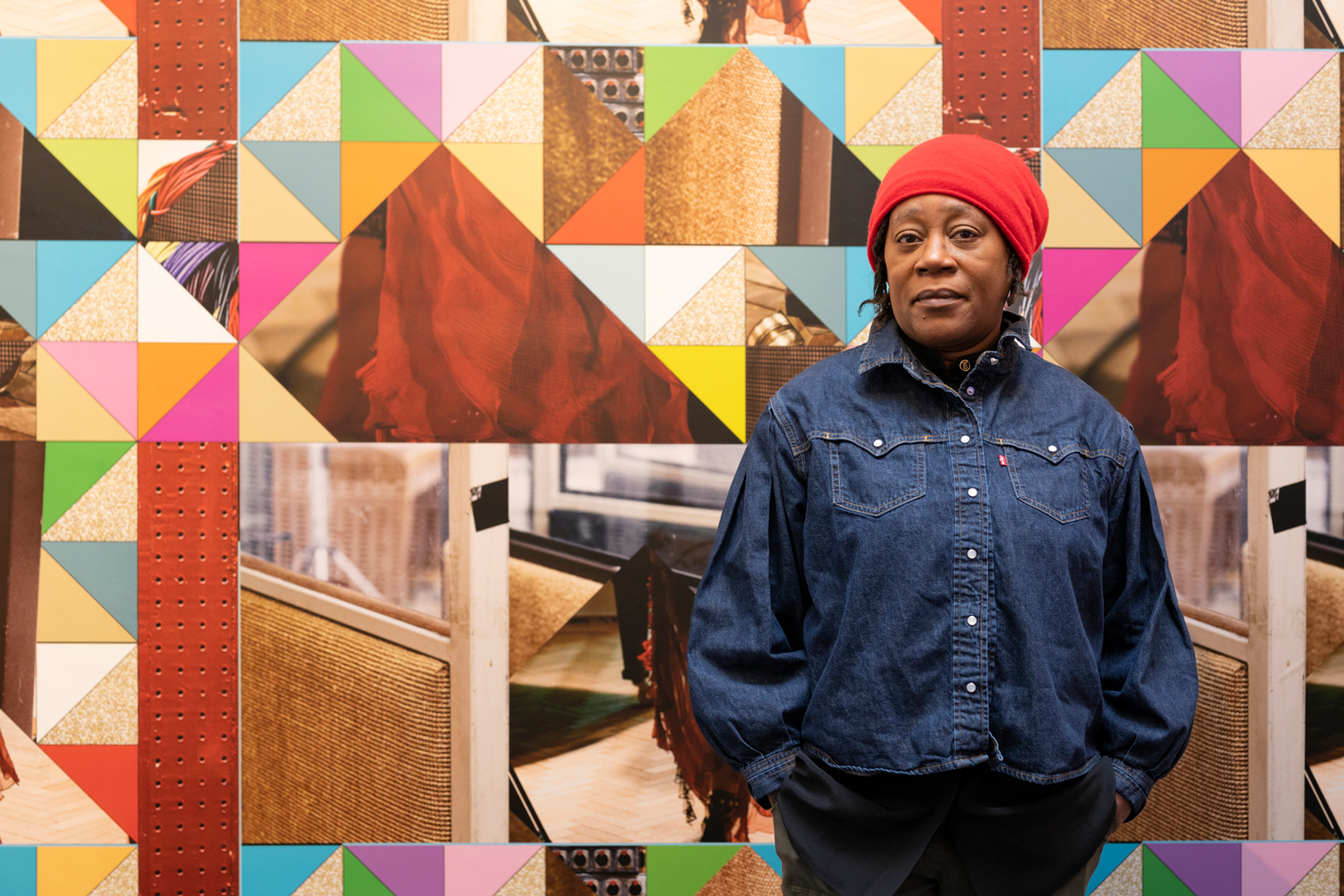
Artist Sonia Boyce standing in room 5 at the British Pavilion, 2022.
The Venice Biennale collateral events may have been unofficially dominated by two male mega artists (Anish Kapoor and Anselm Kiefer), but it was the women who stole the show.
On 23 April, the Golden Lion for Best National Participation was awarded to Great Britain’s Sonia Boyce and her pavilion ‘Feeling Her Way’, a characteristic celebration of improvisation and collaborative play (and might have also taken the crown for most impressive pavilion queue), while American artist Simone Leigh secured the Golden Lion for Best Participation in the ‘The Milk of Dreams’. Notably, both Boyce and Leigh are the first Black women to represent their nations in the biennale’s 127-year history. The jury also awarded two Golden Lions for Lifetime Achievement to Chilean artist Cecilia Vicuña and German artist Katharina Fritsch – a full house of female trailblazers.
Don’t judge a show by its pavilion
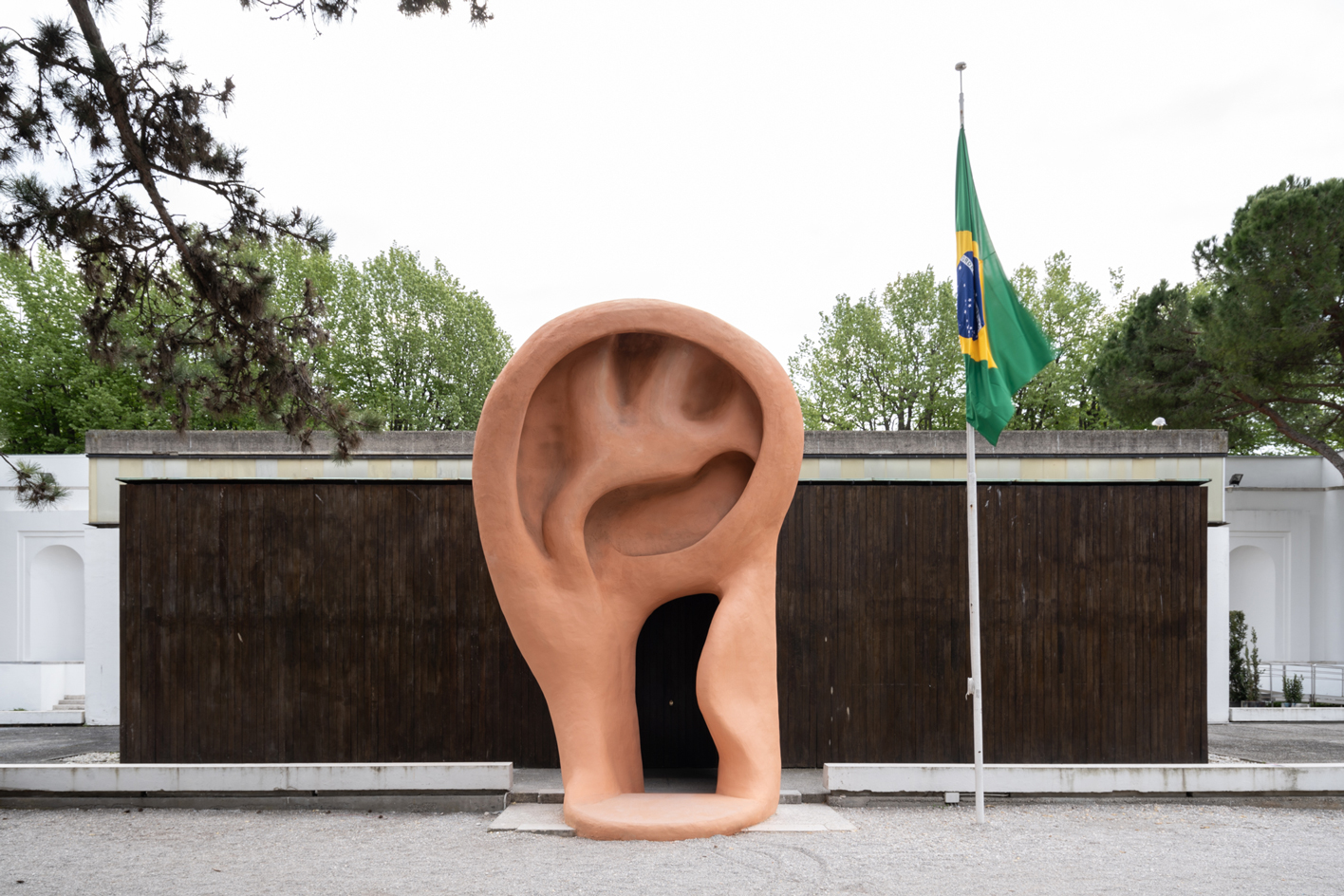
Pavilion of Brazil, com o coração saindo pela boca / with the heart coming out of the mouth, by Jonathas de Andrade.
The Giardini has played host to the Venice Biennale since the first edition in 1895. This purpose-built art village is opulent and majestic, even before visitors get to the art. But closer inspection reveals the eerie vestiges of a colonial past. As one might expect, pavilions belonging to Great Britain, France, and Belgium enjoy muscular columns, stately stairs, and prominent positions. Those burdened by colonialism only began to install their pavilions in the mid-1950s; they are nestled in between, often configured at awkward angles, and notably smaller. But as this year’s shows have proved, they should be judged as everything but. The talk of the art town were Romania (Adina Pintilie), Canada (Stan Douglas) and Brazil (Jonathas de Andrade) in the Giardini. Over in the Arsenale, Malta (Arcangelo Sassolino, Giuseppe Schembri Bonaci, Brian Schembri), Iceland (Sigurður Guðjónsson), Oman (Anwar Sonya, Hassan Meer, Budoor Al Riyami, Radhika Khimji, Raiya Al Rawahi) and Ukraine (Pavlo Makov) were on many lips.
Out of site, but very much in mind
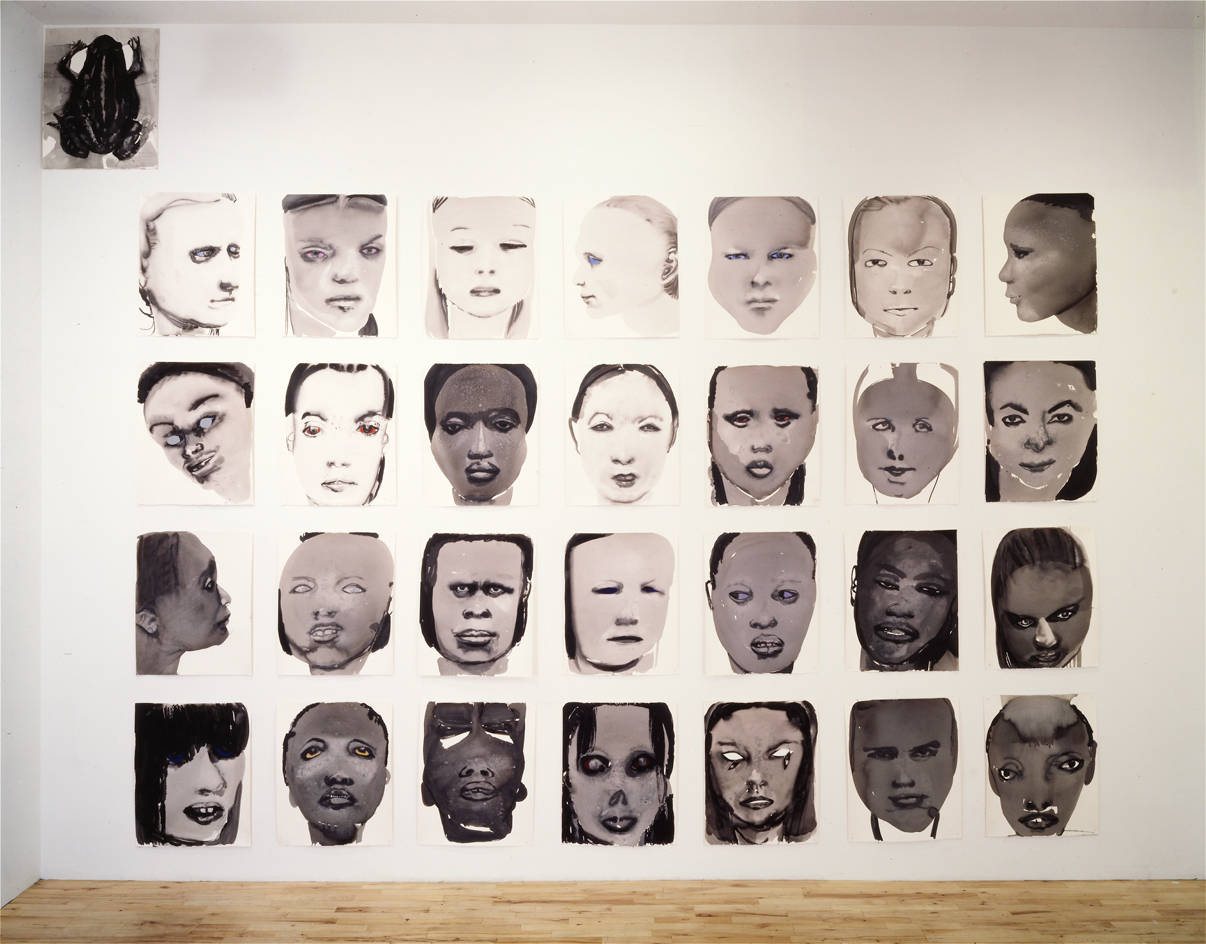
Marlene Dumas, Betrayal, 1994, on view in 'open-end' at Palazzo Grassi. Private collection, Courtesy David Zwirner.
Many off-site shows made an impact this year. This excitement can – anecdotally – be quantified by the number of ‘have you seen xxx?’s notched up by any given show.
Key talking points were Stan Douglas’ mesmerising video installation ISDN (the off-site part of his ‘2011 ≠ 1848’ exhibition for the Canadian Pavilion), a dialogue between UK grime and Egyptian mahraganat music; Mary Weatherford’s horror-meets-beauty meditation on a Titian masterpiece, Marlene Dumas’ erotic, disturbing, yet glorious Palazzo Grassi takeover; the group show ‘Uncombed, Unforeseen, Unconstrained’, featuring a 24-hour performance on Oliver Beer’s new Vessel Organ; Anish Kapoor’s two-part gore-fest (an opinion divider, hardly unexpected), and Anselm Kiefer’s fulfilment of a ‘mad fantasy’ at the Palazzo Ducale, which, true to the artist’s claim, is entirely bonkers.
A late, but no less notable arrival came from Ai Weiwei, who unveiled his first-ever exhibition of glass sculptures on the island of San Giorgio Maggiore in August.
As the sun sets on an epic Venice Biennale 2022, there's no doubt that this edition will be remembered as one of resilience, female power and unsurprisingly, lots of surprises.
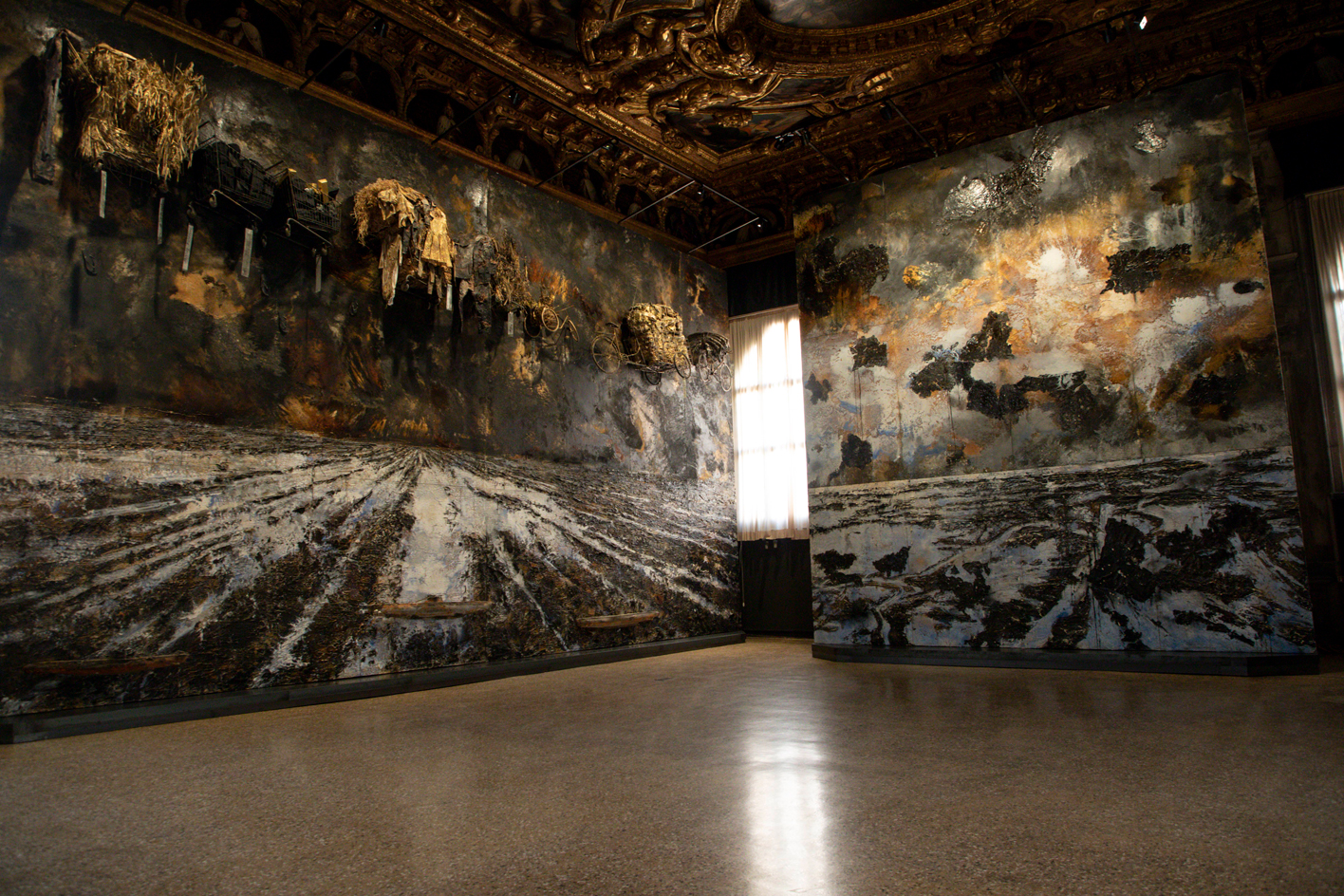
Anselm Kiefer Questi scritti, quando verranno bruciati, daranno finalmente un po’ di luce (Andrea Emo). (These writings, when burned, will finally cast a little light), 2022, installation view.
INFORMATION
The 59th Venice Biennale will run until 27 November 2022. labiennale.org
Harriet Lloyd-Smith was the Arts Editor of Wallpaper*, responsible for the art pages across digital and print, including profiles, exhibition reviews, and contemporary art collaborations. She started at Wallpaper* in 2017 and has written for leading contemporary art publications, auction houses and arts charities, and lectured on review writing and art journalism. When she’s not writing about art, she’s making her own.
-
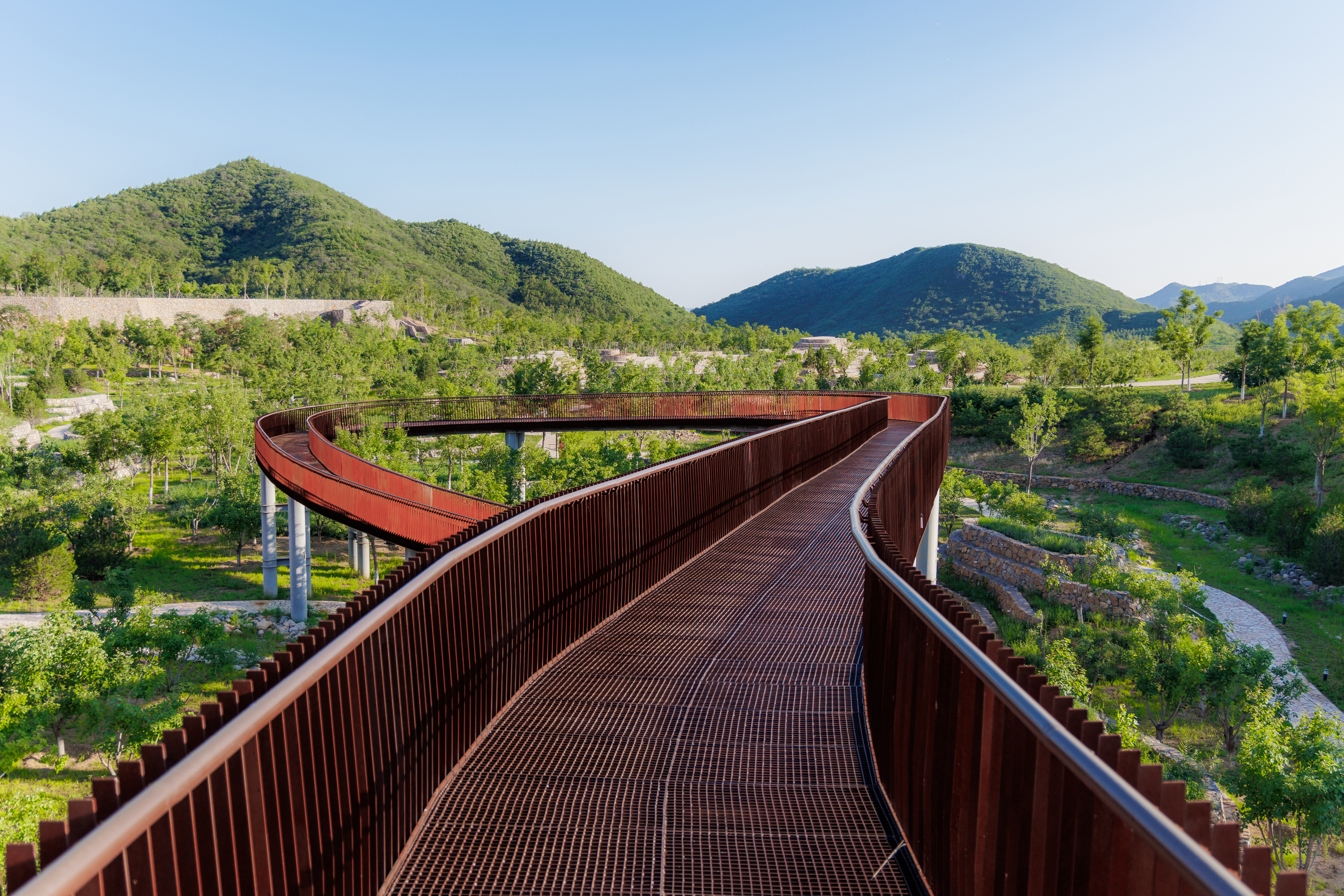 A Xingfa cement factory’s reimagining breathes new life into an abandoned industrial site
A Xingfa cement factory’s reimagining breathes new life into an abandoned industrial siteWe tour the Xingfa cement factory in China, where a redesign by landscape specialist SWA Group completely transforms an old industrial site into a lush park
By Daven Wu
-
 Put these emerging artists on your radar
Put these emerging artists on your radarThis crop of six new talents is poised to shake up the art world. Get to know them now
By Tianna Williams
-
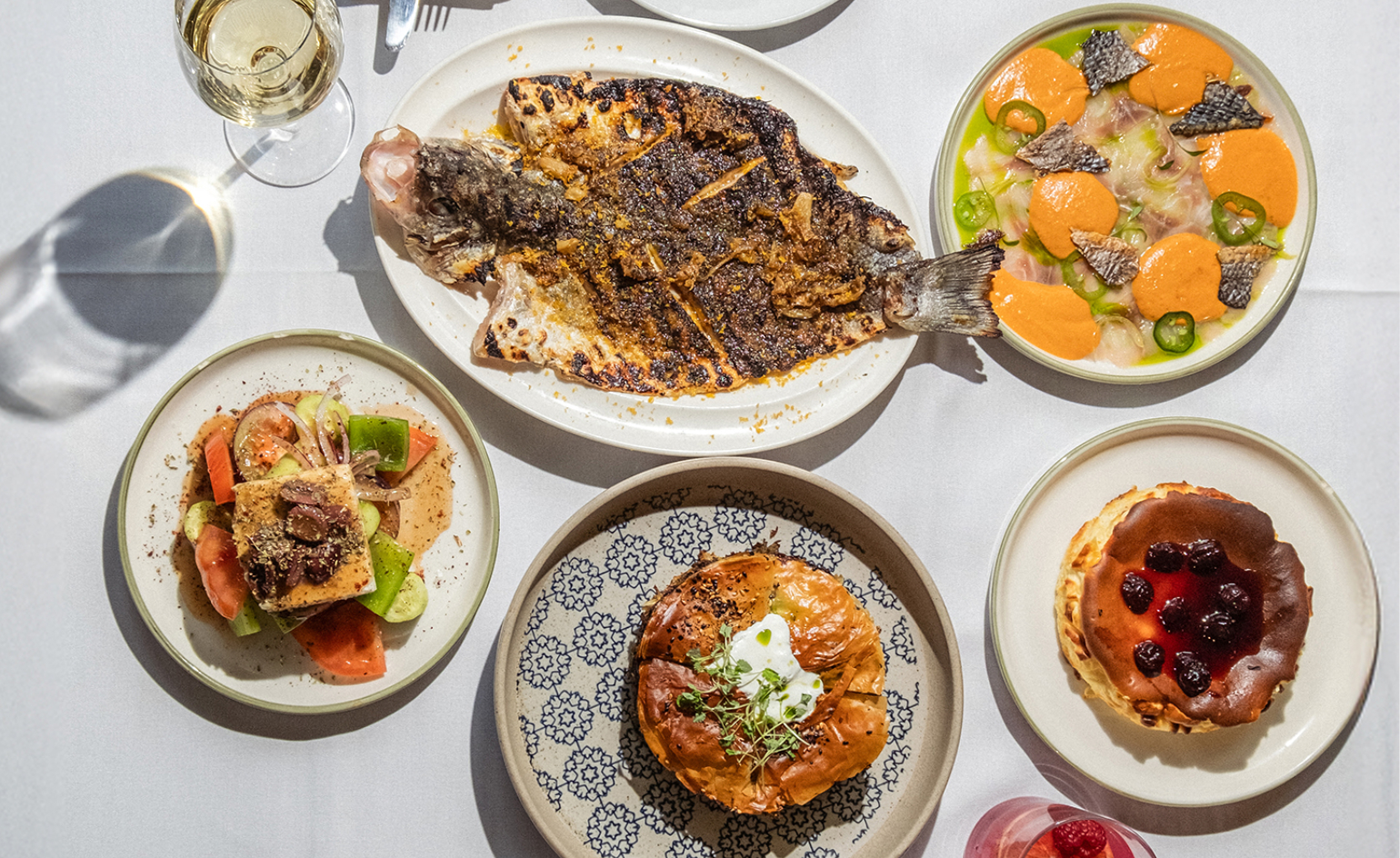 Dining at Pyrá feels like a Mediterranean kiss on both cheeks
Dining at Pyrá feels like a Mediterranean kiss on both cheeksDesigned by House of Dré, this Lonsdale Road addition dishes up an enticing fusion of Greek and Spanish cooking
By Sofia de la Cruz
-
 Saskia Colwell’s playful drawings resemble marble sculptures
Saskia Colwell’s playful drawings resemble marble sculpturesSaskia Colwell draws on classical and modern references for ‘Skin on Skin’, her solo exhibition at Victoria Miro, Venice
By Millie Walton
-
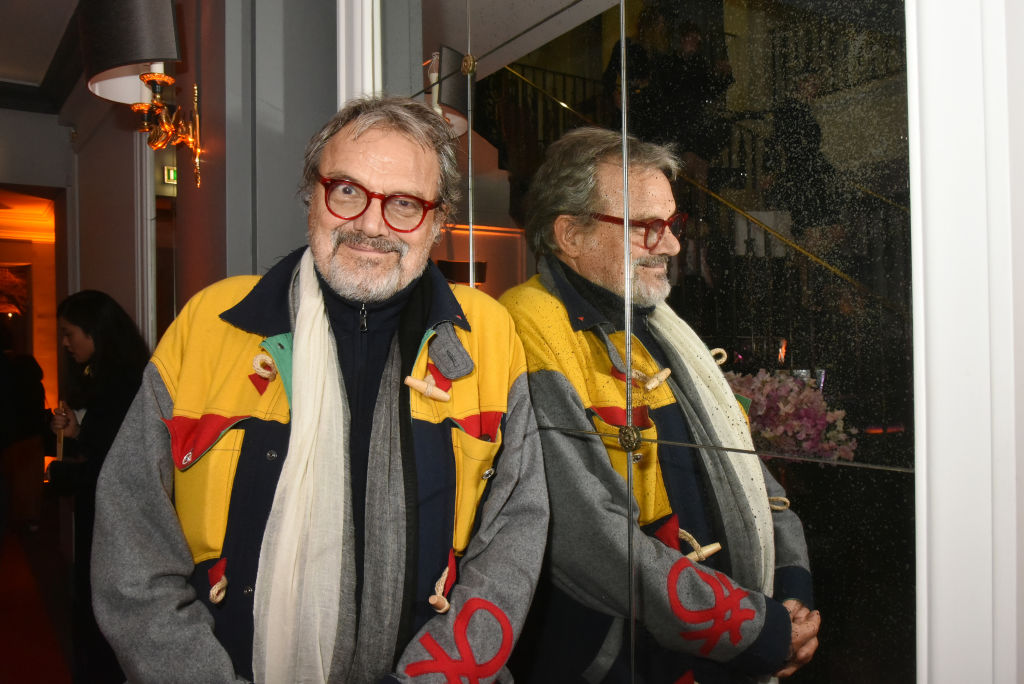 Remembering Oliviero Toscani, fashion photographer and author of provocative Benetton campaigns
Remembering Oliviero Toscani, fashion photographer and author of provocative Benetton campaignsBest known for the controversial adverts he shot for the Italian fashion brand, former art director Oliviero Toscani has died, aged 82
By Anna Solomon
-
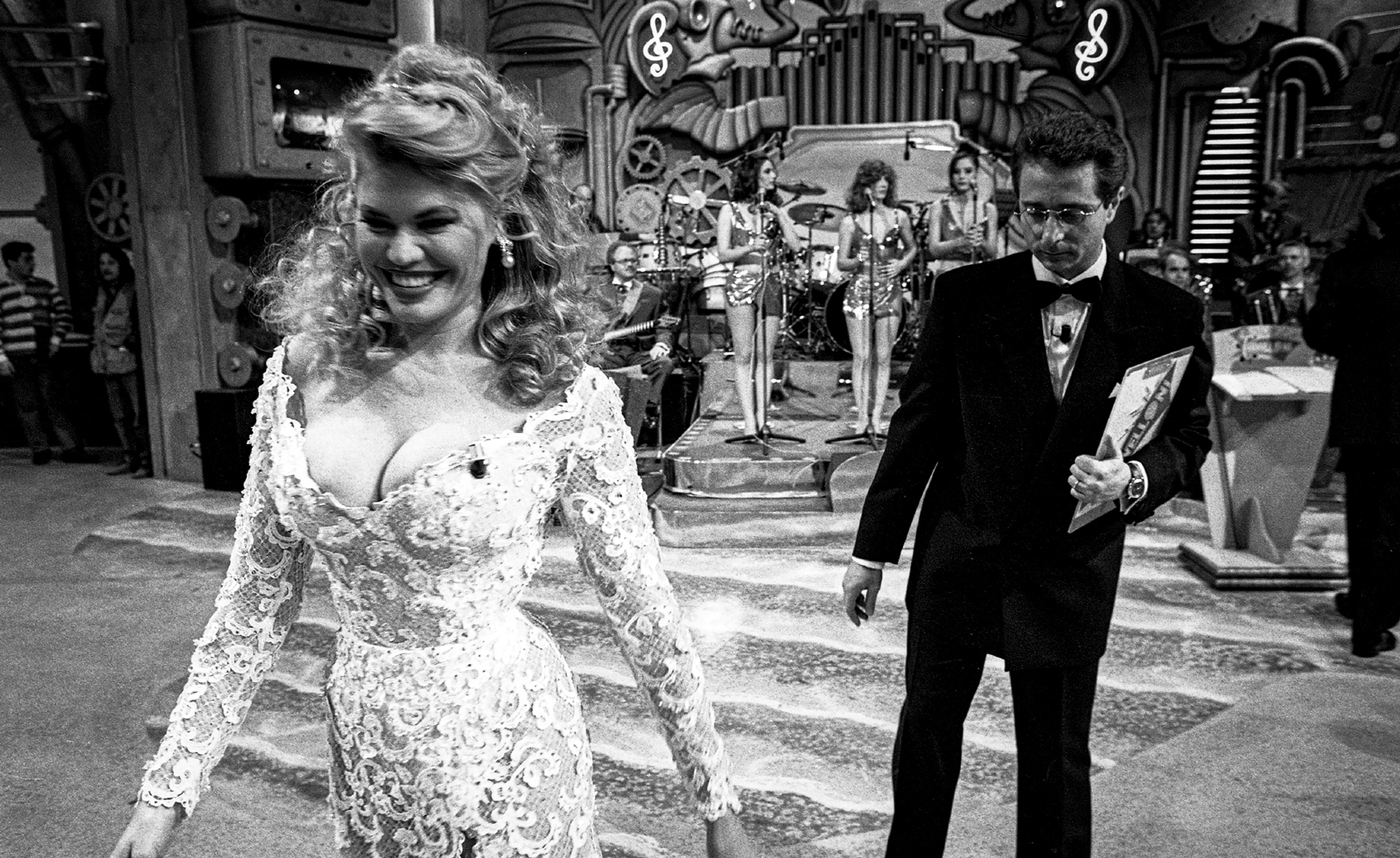 Distracting decadence: how Silvio Berlusconi’s legacy shaped Italian TV
Distracting decadence: how Silvio Berlusconi’s legacy shaped Italian TVStefano De Luigi's monograph Televisiva examines how Berlusconi’s empire reshaped Italian TV, and subsequently infiltrated the premiership
By Zoe Whitfield
-
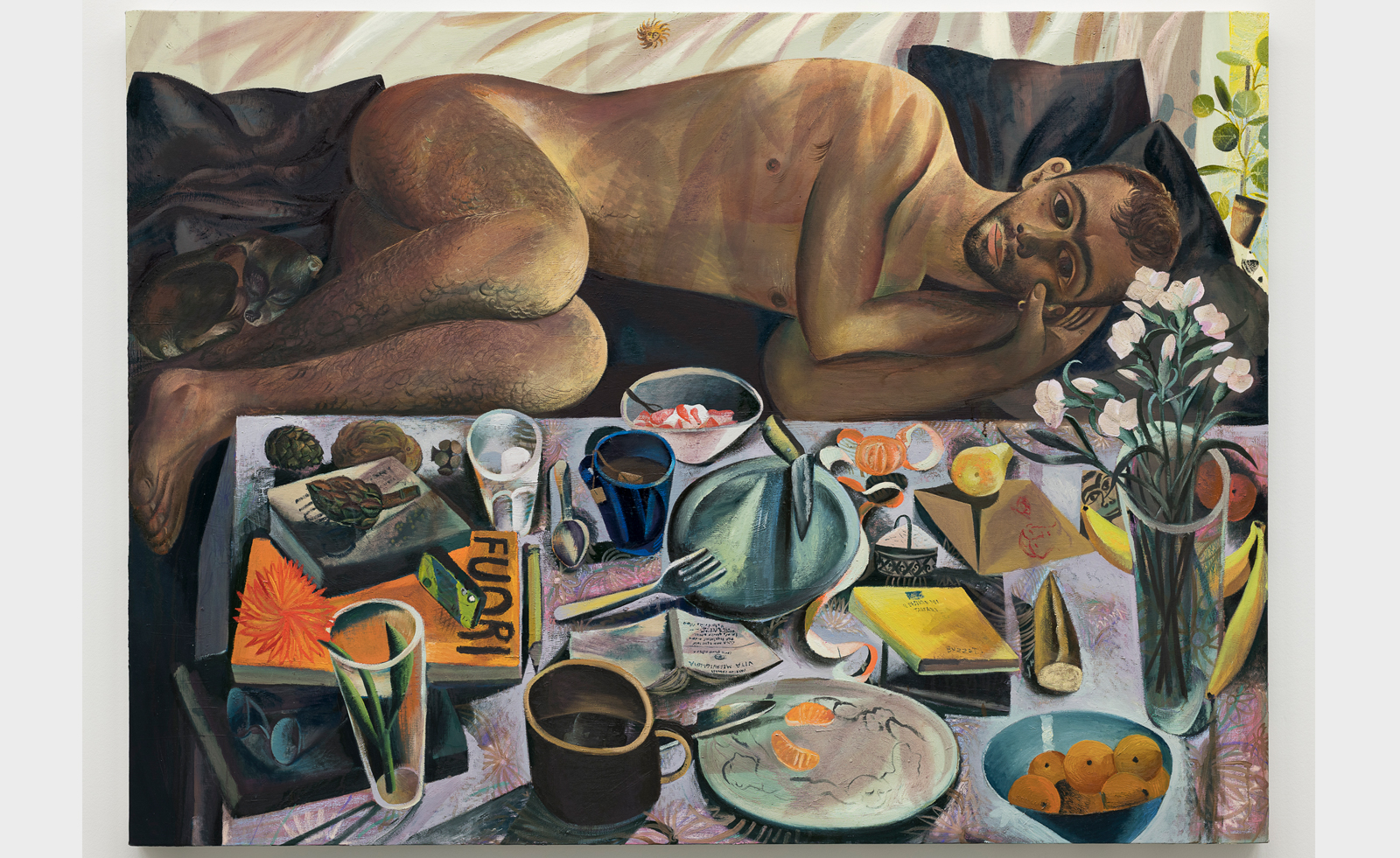 Louis Fratino leans into queer cultural history in Italy
Louis Fratino leans into queer cultural history in ItalyLouis Fratino’s 'Satura', on view at the Centro Pecci in Italy, engages with queer history, Italian landscapes and the body itself
By Sam Moore
-
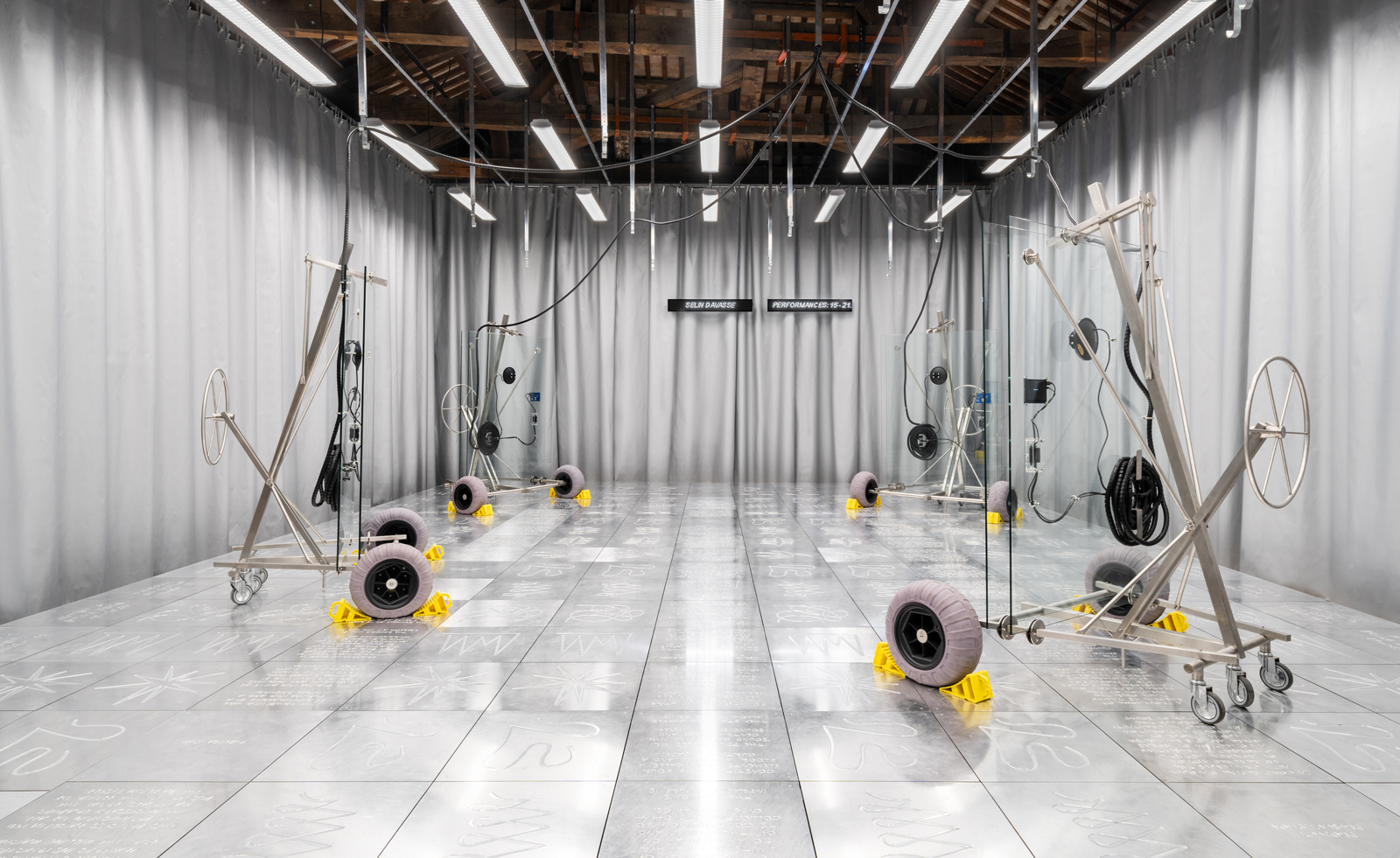 Don't miss Luxembourg's retro-futuristic lab pavilion in Venice
Don't miss Luxembourg's retro-futuristic lab pavilion in VeniceAs the Venice Biennale enters its last few weeks, catch 'A Comparative Dialogue Act' at the Luxembourg Pavilion
By Amah-Rose Abrams
-
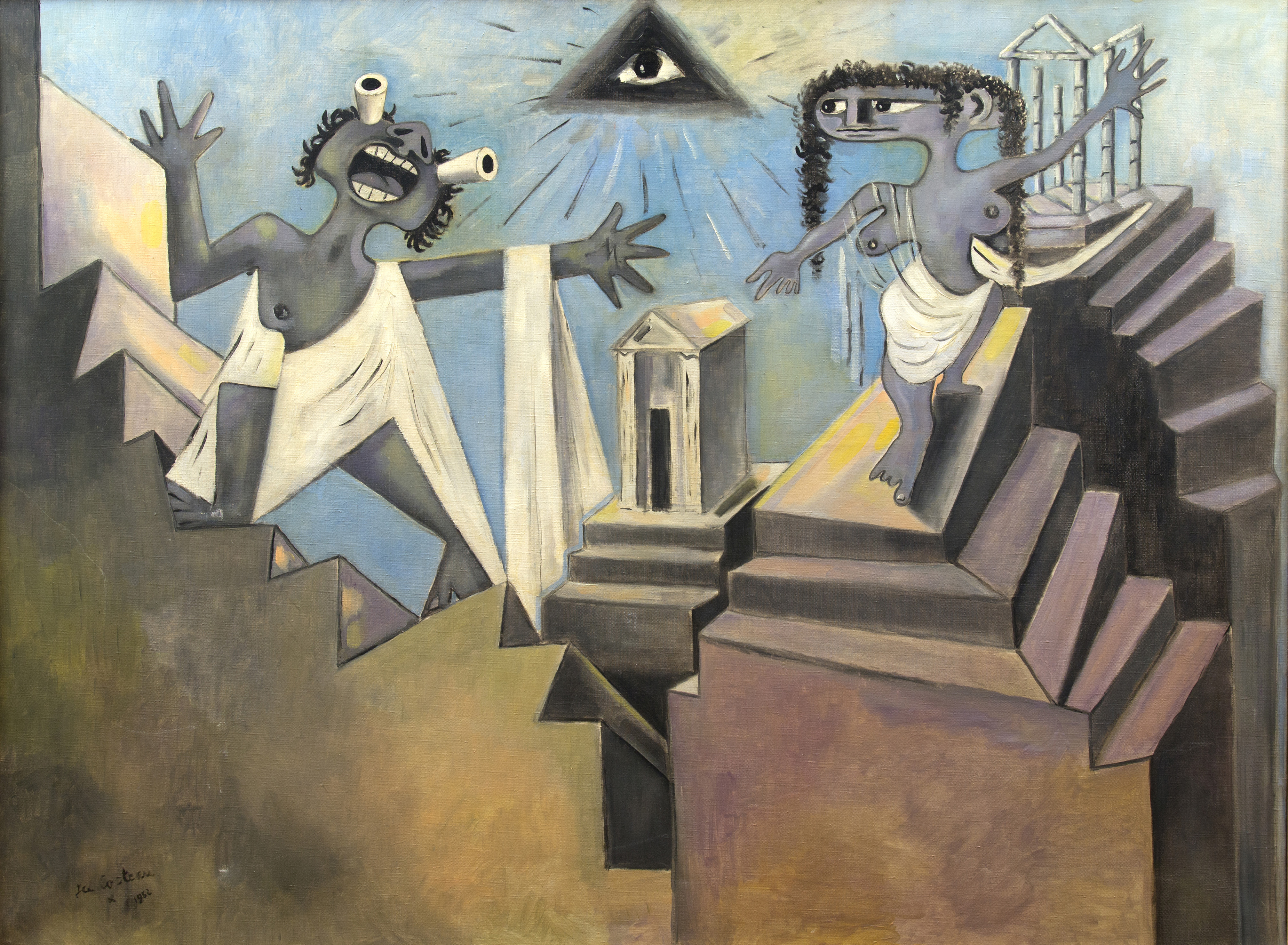 Portrait of a modernist maverick: last chance to see the Jean Cocteau retrospective in Venice
Portrait of a modernist maverick: last chance to see the Jean Cocteau retrospective in Venice‘Cocteau: The Juggler’s Revenge’, celebrating the French artist's defiance of artistic labels, is in its final week at Peggy Guggenheim Collection, Venice
By Caragh McKay
-
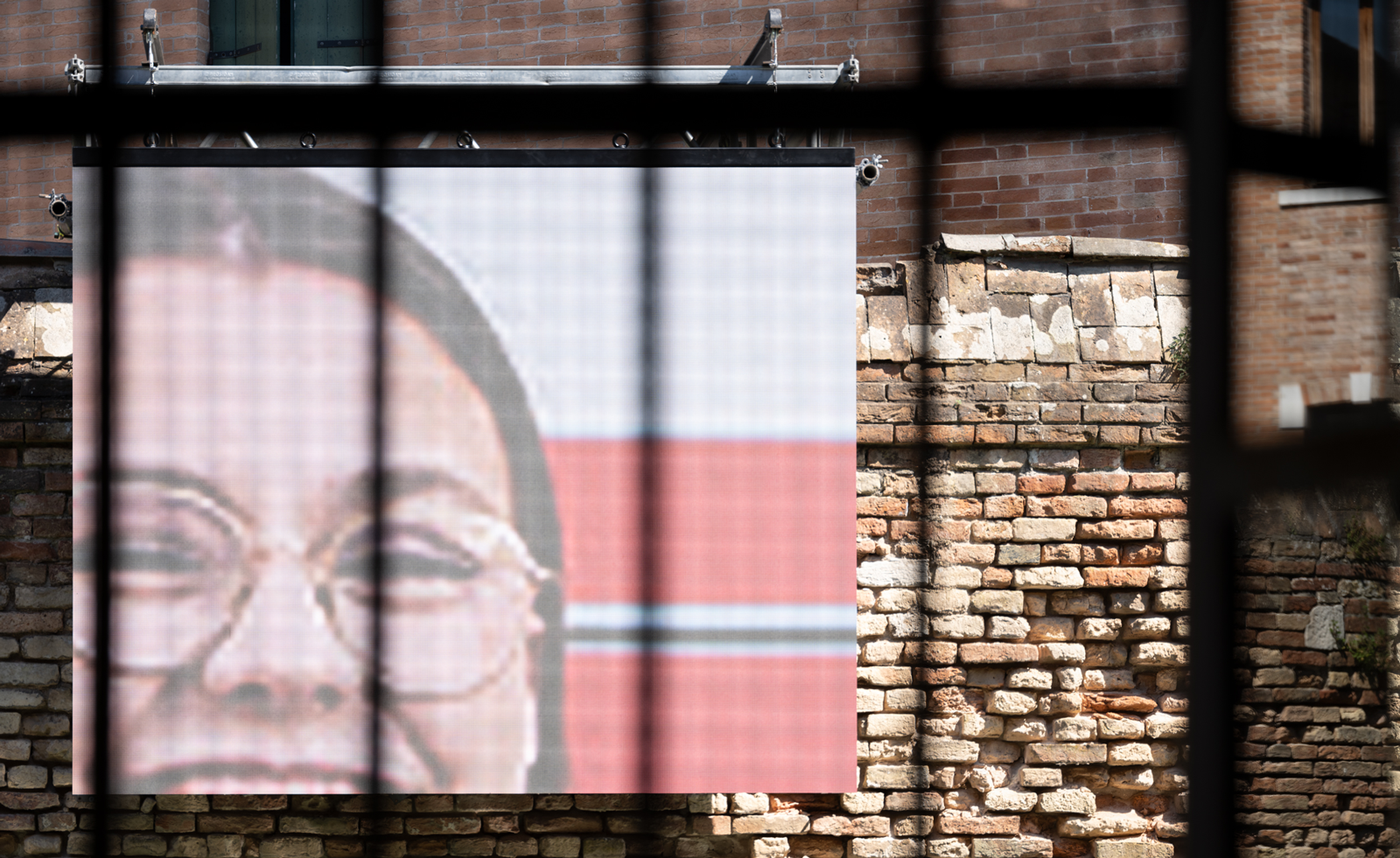 ‘Everything human-made is of interest to me’: Hildigunnur Birgisdóttir in Venice
‘Everything human-made is of interest to me’: Hildigunnur Birgisdóttir in VeniceArtist Hildigunnur Birgisdóttir explores consumerism at the Icelandic Pavilion at the Venice Biennale 2024
By Hannah Silver
-
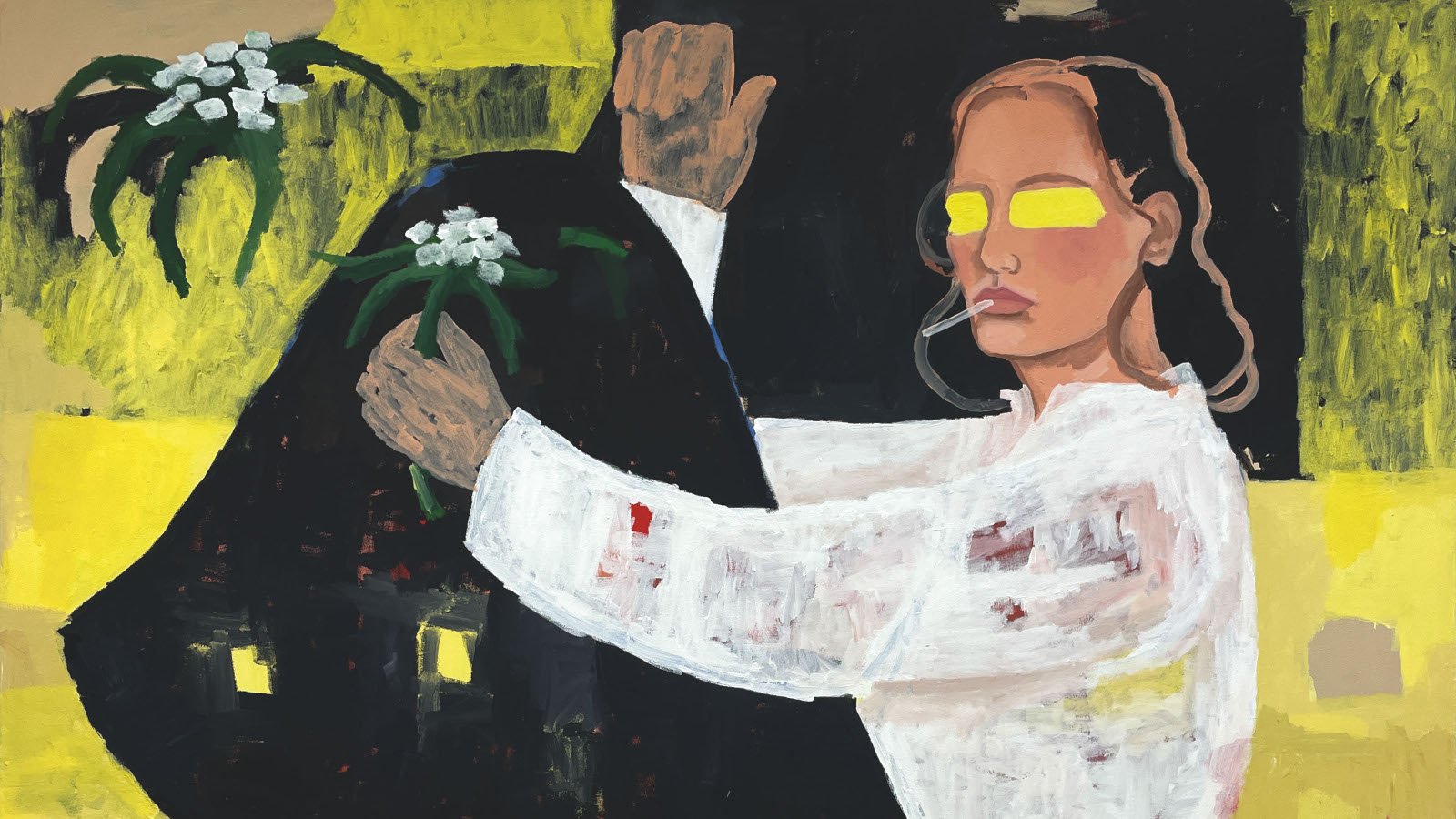 ‘Personal Structures’ in Venice is about ‘artists breaking free’
‘Personal Structures’ in Venice is about ‘artists breaking free’‘Personal Structures 2024: Beyond Boundaries’ reveals a rich tapestry of perspectives on the challenges of our time, from culture to climate and identity
By Nargess Banks